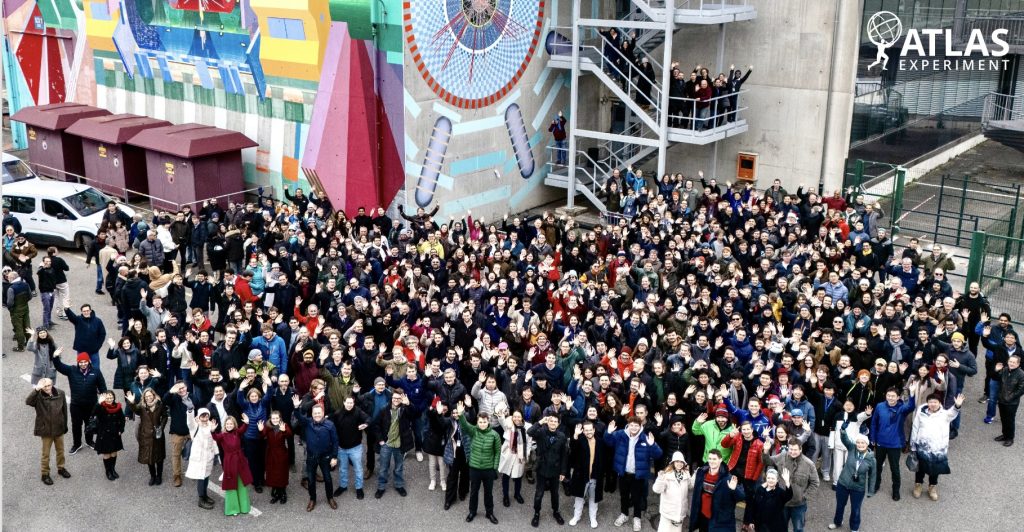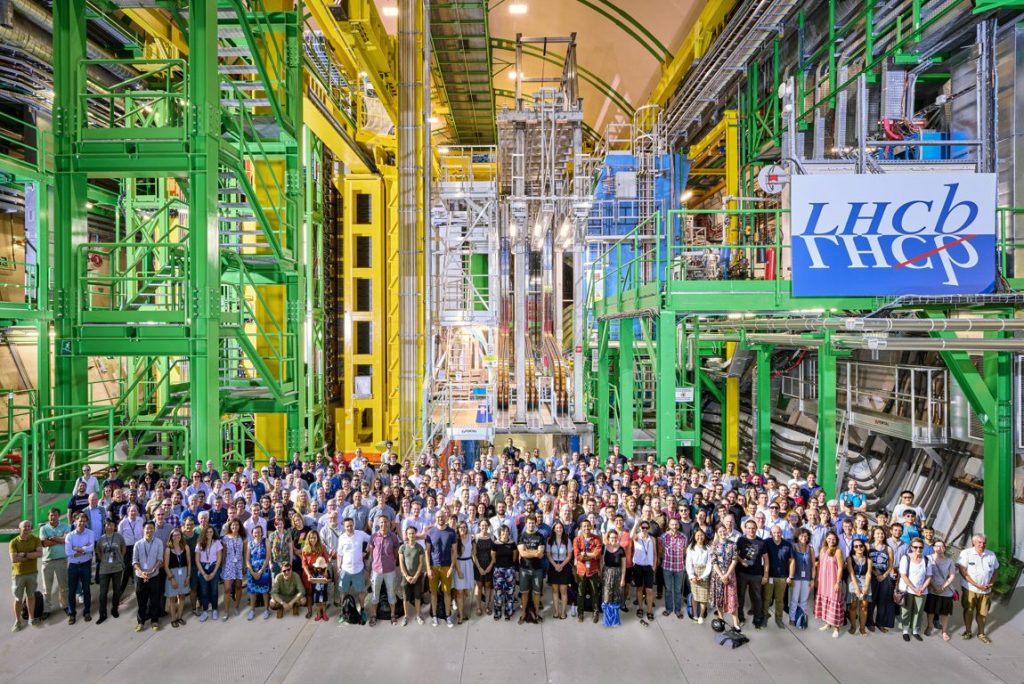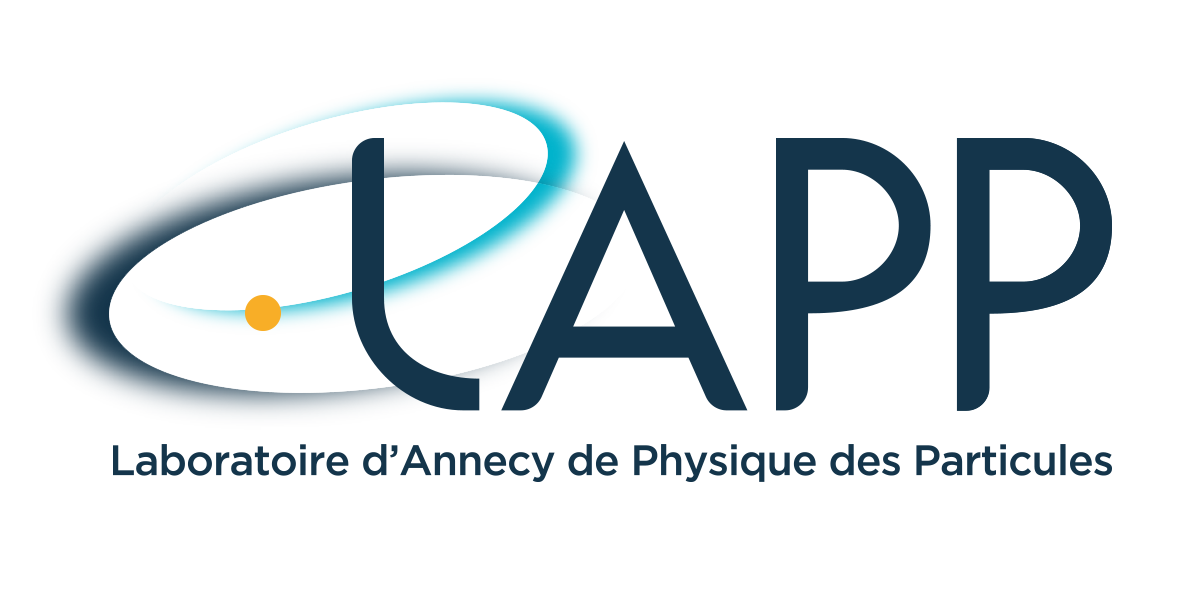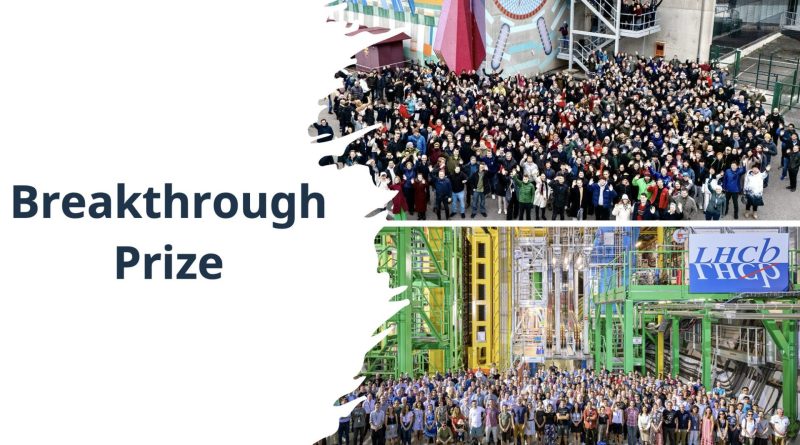LAPP Physicists Among Winners of Prestigious Breakthrough Prize in Fundamental Physics
Physicists from the Laboratoire d’Annecy de Physique de Particules (LAPP) are among the thousands of researchers worldwide honoured with the 2025 Breakthrough Prize in Fundamental Physics. The prize was awarded to the ATLAS, ALICE, CMS, and LHCb Collaborations at CERN’s Large Hadron Collider (LHC) for their groundbreaking contributions to particle physics. LAPP hosts key teams from the ATLAS and LHCb experiments and has played a major role in the scientific success of both collaborations over the years.
“I am extremely proud to see the extraordinary accomplishments of the LHC collaborations honoured with this prestigious Prize,” said Fabiola Gianotti, Director-General of CERN. “It is a beautiful recognition of the collective efforts, dedication, competence and hard work of thousands of people from all over the world who contribute daily to pushing the boundaries of human knowledge.”
ATLAS: A Global Effort in Unveiling the Universe
ATLAS is one of the largest and most complex scientific instruments ever built. This general-purpose detector — over 40 metres long and 25 metres high — was designed to explore the fundamental constituents of matter and the forces that govern them. Its cutting-edge technology tracks particles created in high-energy collisions, enabling major scientific breakthroughs such as the discovery of the Higgs boson and ongoing searches for physics beyond the Standard Model.

The Breakthrough Prize recognises the ATLAS Collaboration’s outstanding contributions, including:
- Precision measurements of Higgs boson properties;
- Studies of rare processes and matter-antimatter asymmetries;
- Probing the behaviour of nature under extreme conditions.
“The Breakthrough Prize is a testament to the dedication and ingenuity of the ATLAS Collaboration and our colleagues across the LHC experiments,” said ATLAS Spokesperson Stephane Willocq. “This prize recognises the collective vision and monumental effort of thousands of ATLAS collaborators worldwide.”
LAPP has been a central player in ATLAS research since the 1990s, contributing to:
- The construction and operation of the Liquid Argon (LAr) electromagnetic calorimeter, essential for reconstructing and calibrating electrons and photons;
- The development of photon and electron triggering, reconstruction and identification techniques — crucial for the Higgs boson discovery and subsequent precision measurements in the electroweak sector;
- Scientific leadership in the ATLAS Higgs, Standard Model, and EGamma groups, helping shape the experiment’s research direction.
“Our team’s work exemplifies the innovation driving ATLAS forward,” said Marco Delmastro, Research Director at LAPP. “The close interplay between deep detector understanding, performance optimization, and cutting-edge physics measurements highlights the significance of our contributions and inspires us to continue exploring the universe’s most fundamental questions.”
While celebrating this international recognition, the ATLAS Collaboration continues to look ahead. The LHC is currently in its third run, and preparations for the High-Luminosity LHC (HL-LHC) upgrade are advancing rapidly. LAPP physicists and engineers are actively contributing to these efforts, leading the development of new front-end and back-end electronics for the upgraded LAr calorimeter, as well as participating in the construction of the new Inner Tracker (ITK), which will allow ATLAS to cope with collision rates ten times higher than today when HL-LHC begins operation in 2030.
“We are now preparing the detectors of the future — designed to harness these unprecedented data and further our understanding of the universe’s fundamental building blocks,” concludes Willocq.
LHCb: Shedding Light on the Matter-Antimatter Puzzle
The LHCb experiment investigates subtle differences between matter and antimatter, the violation of fundamental symmetries, and the rich spectrum of hadrons — particles composed of quarks. Through these extremely precise studies, LHCb has expanded our understanding of the Standard Model and uncovered new, unexpected phenomena.

The 2025 Breakthrough Prize highlights LHCb’s key achievements, such as:
- The discovery of over 72 new hadrons;
- Precision measurements in flavour physics;
- Studies of CP violation and the structure of heavy-quark systems.
“The award of the 2025 Breakthrough Prize is a great honour for the LHCb Collaboration,” said LHCb Spokesperson Vincenzo Vagnoni. “It underlines the importance of the many measurements made by the experiment in flavour physics and spectroscopy, exploring subtle differences between matter and antimatter and uncovering new hadronic states.”
LAPP has been at the forefront of LHCb research since 2001:
- Leveraging recognized expertise in calorimetry since the start of the experiment
- Leading role in the development and implementation of the innovative 40 MHz data acquisition system for the first LHCb detector’s upgrade
- Significant contribution to the development of software for reconstructing calorimetric objects in the real-time trigger system
- The team conducted several analyses on the study of Dalitz plots of open charm decays and radiative decays
“Our team brings strong expertise in calorimetry and real-time reconstruction, playing a key role in detector operations and driving advanced analyses of rare processes”, says Jean-François Marchand “This work pushes the precision frontier and tests the Standard Model in search of new physics.”
LAPP is contributing to the LHCb Upgrade II, focusing on higher data rates and improved precision. Leveraging prior experience in firmware and reconstruction software, it explores embedded machine learning on FPGAs for clustering tasks. This enhances real-time processing thanks to FPGA parallelism and low latency. Benchmarking against GPU-based methods will guide resource optimization. Addressing firmware complexity and hardware limits, this shift toward FPGA-based reconstruction marks a key step in maximizing LHCb’s physics reach.


